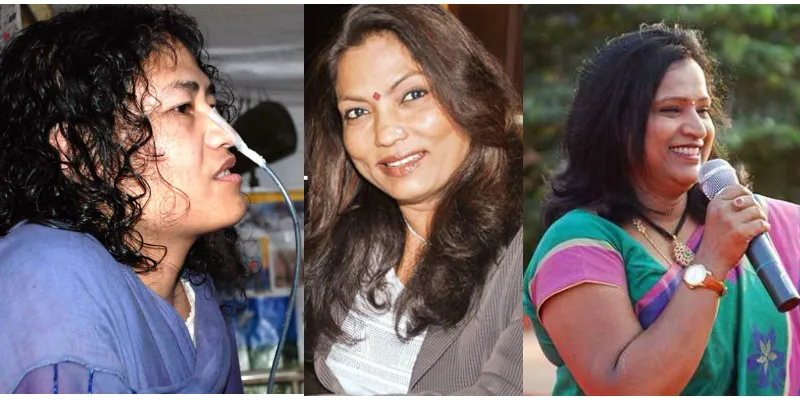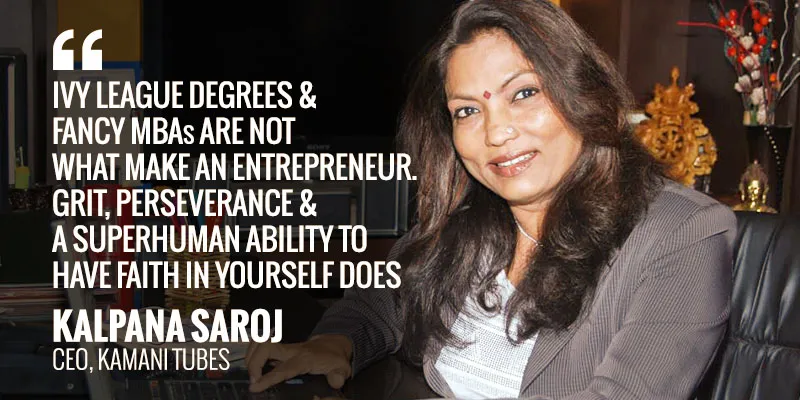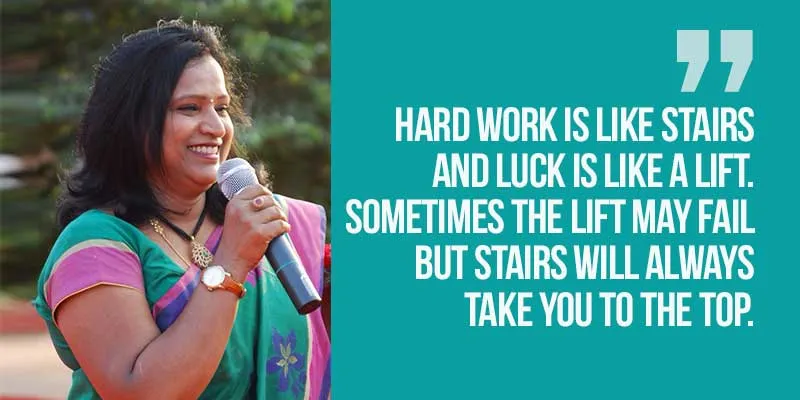Dear Bollywood directors, why haven’t you made films on these 8 women yet?
What does your quintessential Bollywood film constitute? A reluctant hero, their meet-cute with their doom, unbelievable strokes of bad luck, but the hero surprising his doubters by rising to astronomical expectations to save the day. What if we were to tell you that we know some real life stories with all these tropes, which got lost in the pages of history somewhere? These are heroic tales that deserve to be told, for they put fiction to shame with their anger, passion, and gallantry. Here are 8 women who have led lives that would make hair-raising Bollywood dramas:

1. Irom Sharmila
Irom Sharmila is also known as “The Iron Lady of Manipur”and “The Fair One”. She is an image of rebellion in her unruly locks, dead-pan eyes and tireless lips seeking the repeal of the AFSPA in the North Eastern states – an act that allows Jawans in the area to arrest and shoot on grounds of suspicion, without any investigations, which Sharmila was an eye-witness to when she was 28. The same lips haven’t tasted a morsel of food in 15 years as protest, thus becoming the world’s longest hunger striker. In and out of jail dozens of times since then, she is being force-fed and kept alive.
2. Savitribai Phule
The comrade to possibly one of the first known male feminists in history –Jyotiba Phule. A first-generation modernIndian feminist herself, she was married at the age of 12 to the man she marched with, on improving the conditions of widows, especially those who were exploited and raped, and carried an illegitimate child as a result. She even adopted one as her own, and raised him to be a doctor. She opened fire on the absurd custom of denying women education, by opening India’s first girls’ school and becoming a teacher there, too. In a tragic turn of events, the beloved heroine died during the worldwide Third Pandemic of thebubonic plague in 1897. She was living in a contamination-free zone, she contracted the disease as she insisted on personally caring for her patients in her charitable dispensary. The revolutionary had three films planned on her life in Marathi Cinema, albeit with limited fanfare that made little noise.
3. Captain Lakshami
Shaheed Bhagat Singh had two films made on him in quick succession, but equal to him in valour, patriotism and the spirit of inquilab were lakhs of faceless warriors who unceremoniously served their countries. One such woman was Lakshami Sahgal, a doctor who, during the surrender of Singapore by the British to the Japanese, treated injured prisoners of war, many of whom who were interested in forming an Indian liberation army. Subhas Chandra Bose arrived in Singapore in 1943 amongst this tempest, to coerce with determination all women to raise a women’s regiment which would “fight for Indian Independence and make it complete.” Without a moment’s hesitation, Lakshmi formed and joined the Rani of Jhansi regiment and transformed into Captain Lakshmi. She marched with the INA to Burma, for the Japanese army, and was taken prisoner.Lakshmi was arrested by the British army in May 1945, remaining in Burma until March 1946, when she was sent to India – at a time when the INA trials in Delhi heightened popular discontent with and hastened the end of colonial rule.

4. Kalpana Saroj:
Kalpana Saroj is described as the ‘original Slumdog Millionaire.’ Born in poverty and subjected to abuse that anyone would crack under, she overcame impossible odds to become one of the most sought after entrepreneurs in the country. Untouchable as a child, abused physically and mentally as a daughter-in-law, and a runaway wife, she only fell into more cusses and shaming from the society for escaping her horrific past. Feeling all hope draining out of her body, she tried to kill herself, but miraculously survived. The incident made her value her life deeply, as she struggled to find work, take job after job and loan after loan to set up service shops as a tailor and a furniture dealer. Her perseverance and shrewd sense of strategy perched her on top of a $112 million dollar empire, today. Some Hollywood directors have expressed interest in making films on her, with Priyanka Chopra playing the real-life heroine on-screen. However, there has been no further word on whether the project is a go.
5. Arunima Sinha
Anurima Sinha knew she was destined for scaling athletic heights, and an accident in which she lost her limbs didn’t hurt her odds. As an immensely talented national level volleyball player, her future seemed to be laid out on a platter, when fate took a strike. She was pushed off a moving train by some thieves, and had one of her legs amputated. But she bounced back and trained herself to become the first Indian amputee to climb the Mount Everest. She aspires to climb all the continents’ highest peaks and sink the national flag of India in their terrain.So far, she has successfully climbed five peaks – the Everest in Asia, Kilimanjaro in Africa, Elbrus in Europe, Kosizko in Australia, and Aconcagua in Argentina. Farhan Akhtar had offered to step up to the plate and make the biopic, but a royalty dispute later led to a fall-out.
6. Shweta Katti
She’s born in Mumbai’s red-light district where stories abuse, objectification and trafficking were swapped for breakfast. Dangerously headed down that path herself just by virtue of not knowing if the world would treather any differently, she joined an organisation called Kranti, which was a shelter that aimed at giving its girls as much a shot at becoming doctors or lawyers as the next person. Shweta showed promise and expressed her dream to become a chartered accountant. Robin Chaurasiya’s Kranti helped with her education, and their efforts got her through New York’s Bard College to study Psychology, on a $30,000 scholarship, so she could counsel others like her, thus becoming the first girl from Mumbai’s red light district to study in the United States.

7. Jyothi Reddy:
The orphanage was home to her as a child. Not because she was an orphan, but because Jyothi Reddy’s parents turned her out on the streets, unable to afford her. Married off at 16 to someone a decade older than her, the girl with dreams ended up as a farm labourer, with two daughters at the age of 18. Wanting more than anything that they lead a different life, she toiled in farms and taught at a government school, until a chance encounter with a cousin from the US, who felt Jyothi would thrive there. She joined software training classes against the will of her husband, and saved penny after penny to start a life in America. She worked as a sales girl, then as a room service person in a motel in South Carolina, as a baby sitter in Phoenix, Arizona, as a gas station attendant, and software recruiter in Virginia. Finally, she started her own business and the woman who earned Rs 120 a month is now, a millionaire.
8. Krishnaveni:
When the landmark 73rd amendment mandated 1/3rd of the Panchayati Raj to have a woman at its helm, Krishnaveni, a dalit woman of the Arunthathiyar caste and independent candidate, became sarpanch in Thalaiyuthu panchayat, Nellai district. An underdog given the opportunity to rise, she had no intention of letting it go vain. She constructed roads, built libraries, developed overall infrastructure with amazing speed, but her accomplishments rubbed salt in the wounded egos of the old power-hungry elites. On 13 June 2011, at around 10 pm, some people murderously attacked her by stabbing her 15 times, when she was returning from a Panchayati session – the agenda of which was to build a toilet for dalit women on paramboke (government) land, which was illegally occupied by a Thevar. The media lived up to its image of being incognisant of dalit issues, but a youth revolution was sparked off demanding justice for the valiant survivor.
Sparing film-writers the effort of deviously engineering plot-twists to test the limits of protagonists, these stories have enough tragedy and travesties ensconced within them to be transferred straight on to a script. Not only will they make for great cinema, they will also prove, yet again, how infinite the wrath and passion of a woman can be.







